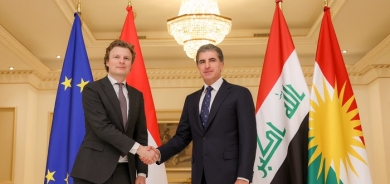UNICEF concerned over deaths of children by explosive devices in Iraq

UNICEF is deeply concerned after the reported deaths of a 10-year-old child on 24 August in Diyala by the detonation of an explosive remnant of war (ERW) and of an 11-year-old child on 25 August in Muradiya Village, South of Baquba, due to an Improvised Explosive Device (IED.) UNICEF expresses its deep sorrow and condolences to the children's families, friends, and communities.
"Sadly, these are not isolated losses of innocent lives. UNICEF expresses its alarm over the increase in child deaths and injuries due to landmines and ERW in Iraq in recent months. Between January and August 2021, the UN has recorded the loss of the lives of 35 children from ERW across the country, and 41 more were maimed. This represents an alarming increase in child casualties compared to 2020 when the UN verified the killing of 6 children and maiming of 12 children for the same period as a result of ERW and landmines.
"Child safety must remain as the primary consideration in all contexts. Landmines and ERW often result in civilian casualties, with children being the most vulnerable. Since children are smaller than adults, they are more likely to take the full impact of the blast and are therefore more likely to suffer death or serious injuries.
"UNICEF urges all parties to accelerate every effort to clear existing mines and unexploded ordnance and promote victim assistance and to uphold children's right to a safe and protective environment.
"UNICEF also urges the Government of Iraq and the donor community to support the scale-up and provision of Explosive Ordnance Risk Education activities so that children and other community members receive explosive ordnance risk education in schools and communities in all areas previously affected by conflict in Iraq."













